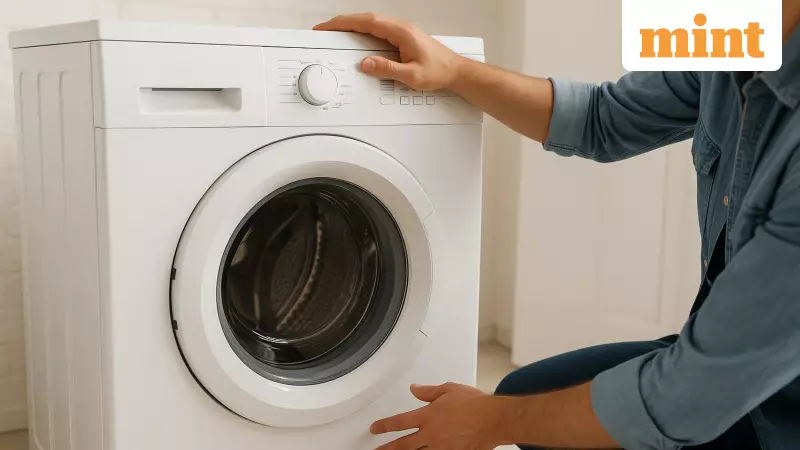
Has your washing machine suddenly started dancing across the floor or refusing to drain properly? Before you panic and call for expensive professional help, you should know that many common washing machine issues have simple DIY solutions that can save you both time and money.
Common Washing Machine Problems and Their Easy Fixes
Most Indian households face similar washing machine troubles, and the good news is that you don't always need to schedule a service call. Experts confirm that several frequent malfunctions can be resolved with basic troubleshooting steps that anyone can perform at home.
When Your Machine Starts Moving and Shaking
A loud, dancing washing machine typically indicates one primary issue: it isn't level. Even a slight tilt can cause the drum to shake violently during spin cycles. The solution involves checking whether all four machine feet are properly touching the floor. Adjust them individually until the washer sits completely steady. Also inspect for small objects that might be stuck underneath, as these can create imbalance too.
Water Drainage Issues and Power Problems
If your clothes emerge from the cycle soaking wet, the drain path is likely blocked. Many people overlook that lint, coins, tissues, and threads often accumulate in the drain filter. Locate the small panel at the bottom front of your machine, twist out the filter, and clean it thoroughly. For machines draining into standpipes, check if the pipe itself is clogged, as slow drainage can cause mid-cycle stoppages.
When your machine refuses to turn on entirely, the problem might not be the appliance itself but the power supply. Loose plugs, tripped breakers, or damaged extension cords are common culprits. Test the socket by plugging in another appliance. If the outlet functions properly, examine the washer's power cable for bends or burns. Also verify that child-lock settings haven't been accidentally activated, as these can freeze the control buttons.
Unusual Noises and Unpleasant Odors
Grinding, rattling, or clicking sounds usually signal that foreign objects have become trapped inside the drum. Small items like coins, hairpins, or screws from pockets can slip through drum holes and get stuck near the impeller. Empty the drum completely, rotate it manually, and listen for unusual noises. If you spot any foreign objects, carefully remove them using pliers. Ignoring this issue can lead to motor damage over time.
A musty smell emanating from your washing machine often results from detergent residue, fabric softener buildup, and damp lint clinging to the rubber gasket. Run an empty hot-water cycle using either machine cleaner or white vinegar. Thoroughly wipe the gasket, door, and detergent tray to remove trapped dirt and residue. Leaving the door slightly ajar after each wash helps prevent moisture accumulation and subsequent odor development.
Poor Cleaning Performance Solutions
If your clothes appear dull and unclean after washing, the problem could stem from hard water, incorrect detergent usage, or overloaded drums. Using excessive detergent can leave a soapy film on fabrics. Check your machine's recommended load capacity and avoid stuffing the drum beyond its limits. Residents in hard-water areas should specifically choose detergents formulated for such water conditions to ensure optimal cleaning results.
These six common washing machine issues demonstrate that many household appliance problems don't require professional intervention. By performing these simple checks and maintenance steps, you can extend your machine's lifespan while saving significant repair costs. Regular maintenance not only keeps your appliance running smoothly but also ensures your clothes come out clean and fresh every time.






